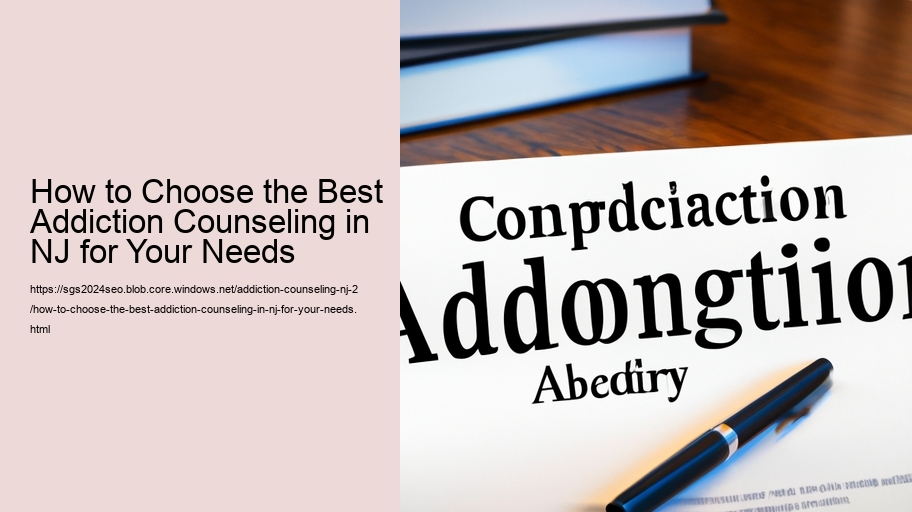Choosing the right addiction counseling in New Jersey is a critical step on the path to recovery. What is Addiction Counseling in NJ and How Does It Work? . Given the complexities of addiction and the diversity of individual needs, it's essential to find a program that not only addresses the substance abuse issues but also aligns with personal circumstances and goals. Here's a comprehensive guide to help you make an informed decision.
First and foremost, it's important to understand the types of addiction counseling available. New Jersey offers a variety of options, including inpatient and outpatient programs, group therapy, individual counseling, and specialized treatment for co-occurring disorders. Inpatient programs provide a structured environment with 24-hour care, which can be beneficial for those with severe addictions. Outpatient programs, on the other hand, offer more flexibility, allowing individuals to maintain their daily responsibilities while attending therapy sessions.
When selecting a counseling service, consider the credentials and experience of the staff. Reputable centers typically employ licensed and certified professionals with expertise in addiction treatment. It's worthwhile to inquire about the therapists' qualifications and the center's accreditation status. Facilities accredited by organizations such as the Joint Commission or the Commission on Accreditation of Rehabilitation Facilities (CARF) adhere to high standards of care.
Another crucial factor is the treatment approach used by the facility. Evidence-based therapies, such as Cognitive Behavioral Therapy (CBT), Motivational Interviewing, and Dialectical Behavior Therapy (DBT), have been proven effective in treating addiction. It's beneficial to choose a program that incorporates these methods, as well as complementary therapies like mindfulness, art therapy, or yoga, which can enhance the healing process.
Moreover, consider the level of personalization offered by the treatment plan. Each person's journey through addiction and recovery is unique, necessitating a tailored approach. A good counseling program will assess your specific needs and craft a treatment plan that addresses not only the addiction itself but also any underlying psychological, social, or medical issues.
Location and environment play a significant role in the recovery process. Some individuals may prefer a facility close to home for convenience and family support, while others might benefit from a change of scenery. The environment should be conducive to healing, with a focus on safety, comfort, and support.
Cost is another important consideration. While some programs can be expensive, many facilities accept insurance or offer sliding scale fees based on income. It's advisable to check with your insurance provider about coverage options and to discuss payment plans with potential counseling centers.
Finally, seek testimonials and reviews from former clients to gain insights into their experiences. Personal recommendations from friends, family, or healthcare providers can also be invaluable. A center with a strong track record of success and positive feedback is often a reliable choice.
In conclusion, choosing the best addiction counseling in New Jersey involves careful consideration of several factors, including the type of program, staff qualifications, treatment approaches, personalization of care, location, cost, and client testimonials. By taking the time to research and evaluate these aspects, you can find a counseling service that meets your specific needs and supports your journey to recovery. Remember, the right program can make a significant difference in achieving lasting sobriety and a healthier, more fulfilling life.

